Empirical trends indicating capitalism is dying¶
Thread by @Grossmanite

🧵 Empirical trends indicating
i) (state monopoly) capitalism is dying a natural death and approaching its final breakdown (as the evolution of production from mechanised to automated is abolishing the source of profit, capital’s theft of commodity-producing labour’s labour time)
ii) (state monopoly) capitalism’s economic-technical basis is evolving into/birthing (state monopoly) socialism, meaning public ownership of the means of production is becoming a global economic necessity *for the first time*
i)
Official US national debt-to-GDP – ballooning with the public bailouts of the private sector in 2008-09 and 20-21 – hit an all time high of 137.2% in 2021. Global debt hit a record $303 trillion in 2021. The relatively dwindling tax base makes this unsustainable. 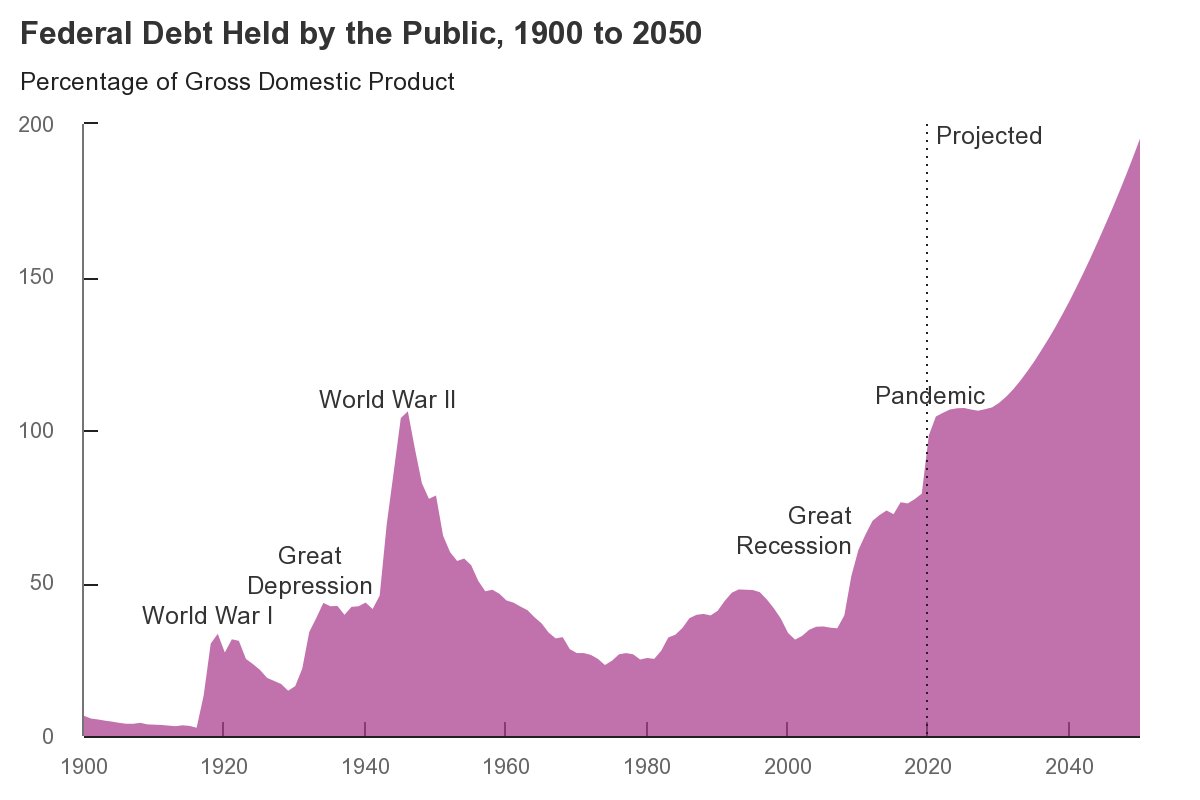
The debt bubble is the third ‘once in a century’ bubble in three decades – there hadn't been an equivalent since 1929 – and an unprecedented ‘everything bubble’ because, for the first time, it now encompasses all asset classes. 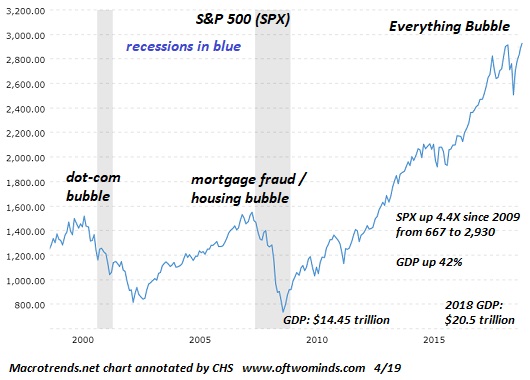
To prevent/postpone US capital’s bankruptcy, the US central bank (the Fed) had to buy corporate debt via unprecedented levels of (electronic) money ‘printing’ – 80% of all US dollars were printed in the 22 months between January 2020 (\(4 trillion) and October 2021 (\)20tr). 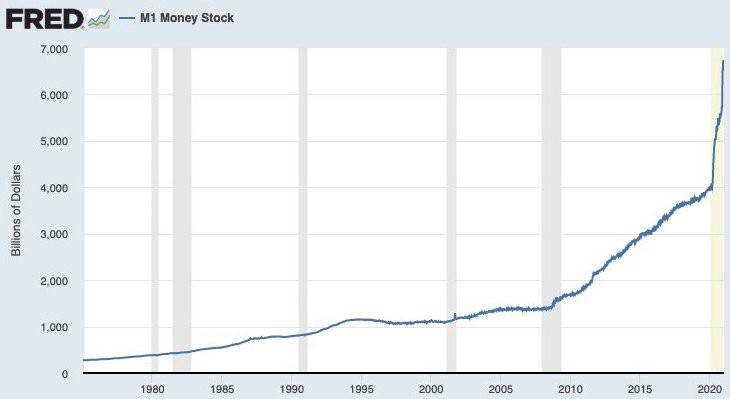
The Fed’s balance sheet rose from $900bn in 2009 to $4.5 trillion in 2014 and then $9 trillion in 2020 – an unprecedented 10-fold increase in 11 years. 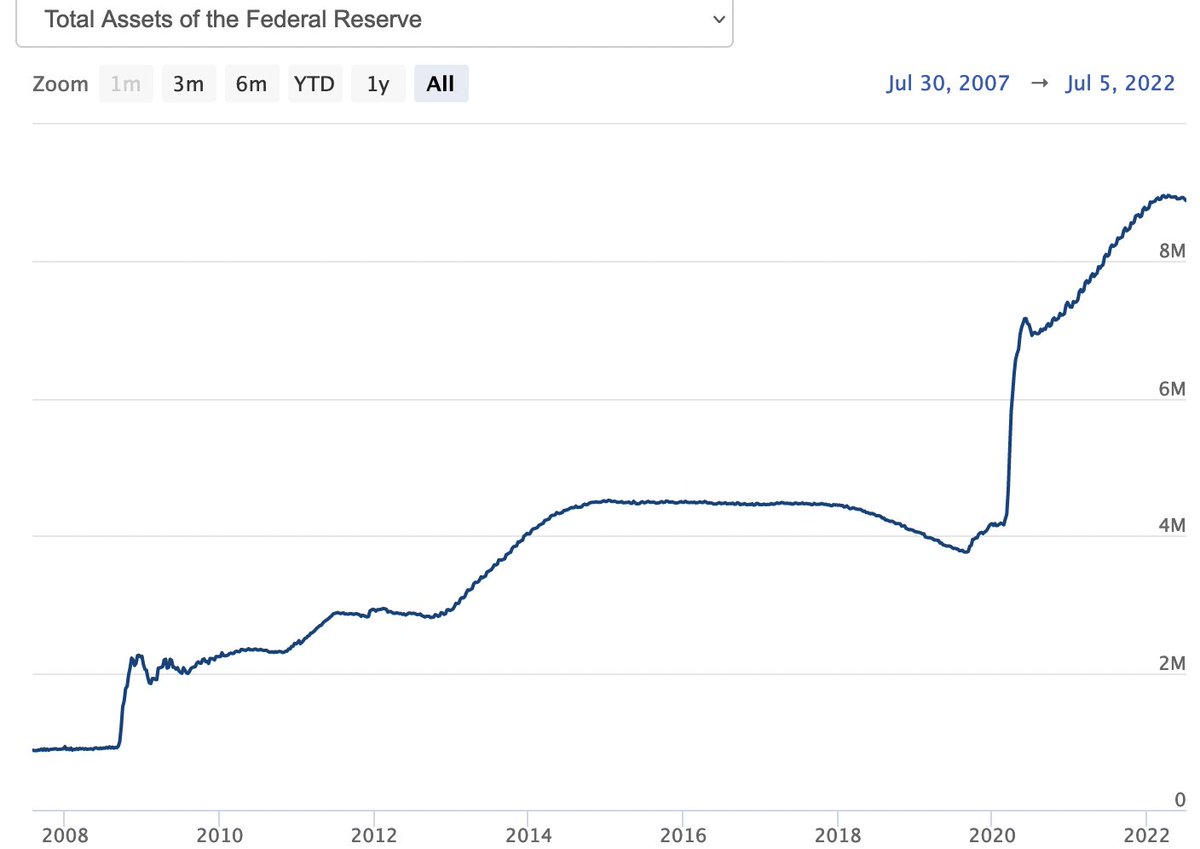
Lifting the US out of recession has required on average since 1958 a baseline interest rate cut of 6% – but before the recent rise aimed at tackling soaring inflation had been more or less stuck at a record low of about 0.1-0.2 since late 2008. 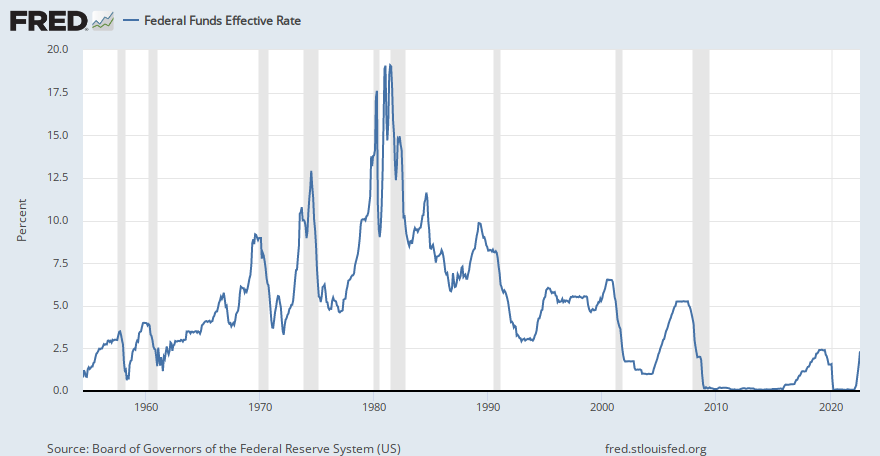
When it rose in Jan 2019 to 2.4% via relatively timid debt reduction, world GDP growth flatlined. Now a rise to just 1.58% has started a global recession.
For more context:
Across advanced capitalist nation-states, nominal and real interest rates, and bond yields, have been declining in a secular trend ever closer to zero (and beyond) – regardless of the political regime (and long before the creation of central banks!) – over the past 700 years 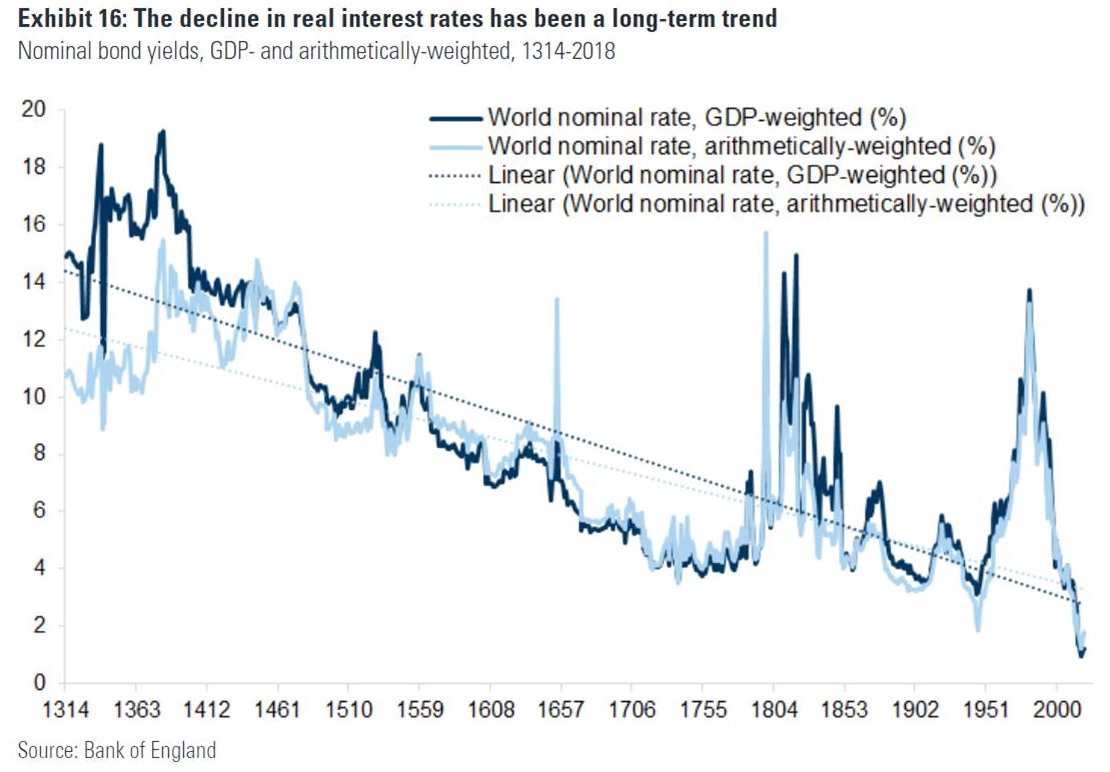
Interest is a form of profit. Similarly, many studies confirm Marx’s “law of a *progressive* fall in the rate of profit”. E.g., Estaban Maito estimates that the ‘world’ ROP fell secularly from 43% in the 1870s to 17% in the 2000s, again ever closer to zero. 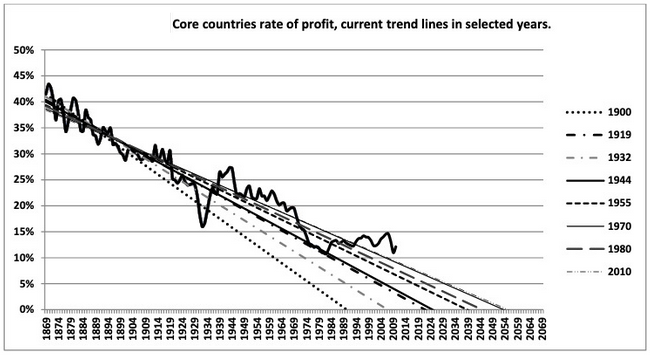
GDP growth rates in ‘high income’ countries are also trending secularly towards zero, having been around 6% in the 1960s and mostly below 2% since 2000. 
The same is true of labour productivity growth rates (despite massive gains absolutely, particularly because of exponential leaps in computing power) 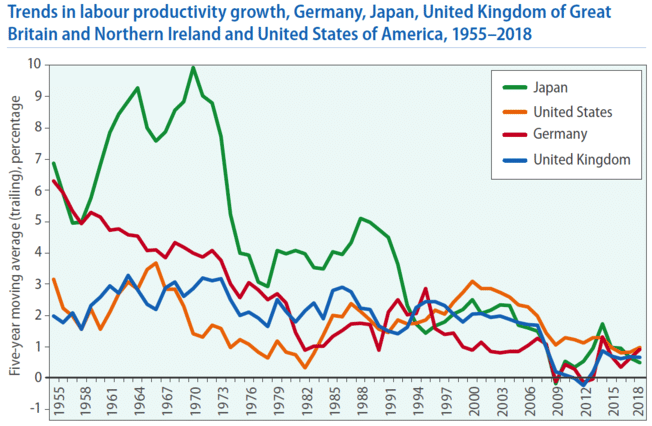
Of the roughly 750 currencies that have existed since 1700, less than 20% remain.
In 2011, British pound sterling had lost more than 99.5% of its purchasing power since its adoption as official currency in 1694. In 2018, the US dollar had lost more than 96% of its purchasing power since 1913, having barely lost any in the previous 140 years. 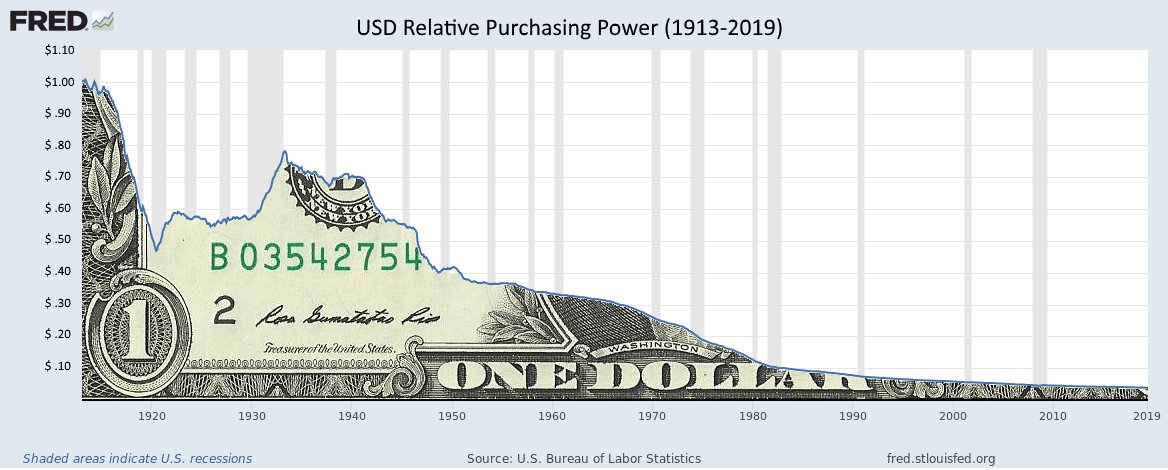
The vast % of that figure, 91%, came after 1949, when the US usurped the UK as #1 imperialist superpower. The figure since 1970 is 85% (93.5% for UK), when capitalism entered its first major post-WWII recession and computing power gains began to impact production exponentially.
Between 1964 and 2014, the average lifespan of S&P 500 companies shrank from around 60 to 18 years.
(Source: hbr.org/2014/04/the-ar…)
Production costs and consumer commodity prices have trended secularly towards zero, since commodities tend to become cheaper the faster and more abundantly they are produced. For e.g.:
whereas the fastest supercomputer in 1975 = \(5m (\)32m in 2013’s money), the price of a 2010 iPhone 4 with the equivalent performance = $400; $billions to sequence the first human genome, below $100 by 2017; 1GB of data storage fell from $200,000 in 1980 to $0.03 in 2014.
In 2000, the cost of producing 1kg of one type of molecule through precision fermentation cost $1m; in 2020 the cost had fallen to $100 and was on course to become cost-competitive with bulk animal protein, which stood at around $10 per kg for casein and whey, by 2025.
When a company like Nestle switches to PF milk – motivated to cheapen its outlay to rewiden profit margins – the (already highly automated and extraordinarily dependent on public subsidies) conventional farming industry will become uncompetitive.
The average Energy Return on Investment (EROI) on fossil fuel has fallen from above 100:1 (a return of 100 units of energy for every 1 invested) before the 1930s to around 3–6:1 in 2019.
Fossil fuels increasingly offer a poor return on energy investment
Indeed, in April 2020 the price of US oil fell below zero for the first time ever. The global fossil fuel industry is already highly dependent on public subsidies ($16bn a day according to the IMF) and artificial scarcity that raises prices by 70-80%.
Revealed: oil sector’s ‘staggering’ $3bn-a-day profits for last 50 years
The value of Saudi Arabia’s oil infrastructure is expected to fall from \(2bn to (minus) –\)800bn later this decade.
Fossil fuel has been vital for capitalism since the intensity of its production combined with its non-renewability have been key to raising the rate of productivity (no. of commodities per worker per hour) and exploitation (the amount of time capital appropriates from labour).
According to Sid Smith, all forms of energy production are becoming unprofitable.
ii) (on the necessity of state monopoly socialism)
Since capital accumulation depends on increasing monopolisation/'globalisation’ + state/public subsidies (including tax cuts), a (therefore global and state/publicly-owned) ‘final merger’ is becoming an economic necessity. 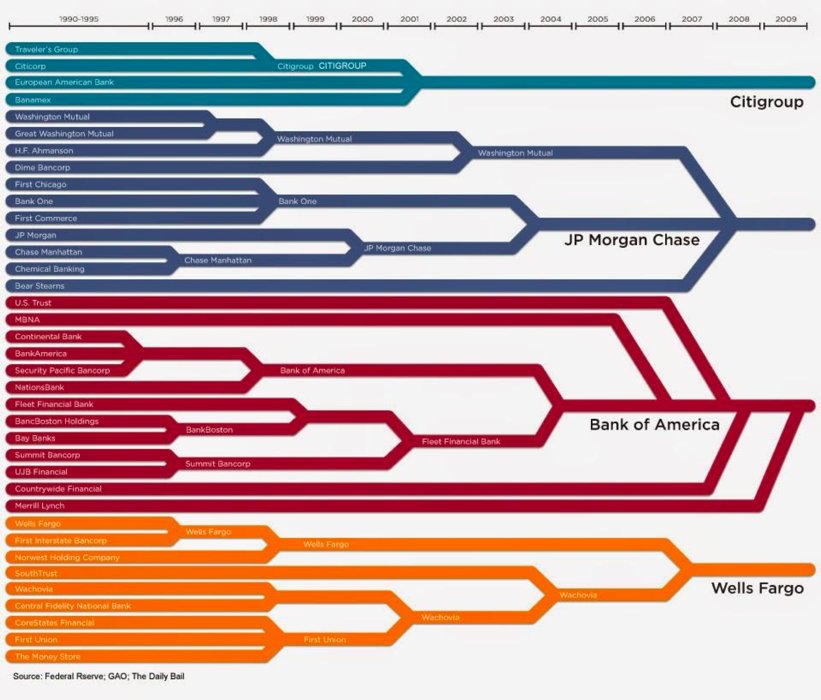
Since private enterprises are increasingly dependent on long-term central planning (eliminated internal markets, efficiency drives, stock coding, etc.), long-term central planning of the global economy as a whole is becoming an economic necessity.
Since the workforce is now almost entirely services-based (as opposed to manufacturing), economic stability can only be established with an applicable system, whereby for-profit commodity-production is replaced by break-even utility-production.
Since money is becoming worthless – again, dying a natural death – it must be replaced by non-transferable vouchers (cancelled once spent, like train tickets), pegged to labour time but weighted according to productivity rates, supply and demand.
Plant the seed, expose people to this information. *Make sure* they read it. It's going to take time to sink in, but in the end it will.
To be clear, I didn't say capitalism would die peacefully, without proletarian organisation and revolution. A violent death is still a natural death. What I'm saying is it hasn't been killable before getting extremely old and senile.
The other point is to show the necessity of 'state monopoly socialism' in terms of the evolutionary process at play - that you cannot leap over evolutionary phases (into 'full communism' or w/e).
Without this info ppl are more likely to make damaging mistakes, 'deviations' etc
• • •
Missing some Tweet in this thread? You can try to force a refresh



